

The aiLab platform comprises an advanced operating system that enables sporting organisations to test and analyse athletes' performance data. It provides real-time, advanced physical and cognitive athlete analysis through a range of on-site solutions — delivering the performance data needed today while generating the insights required for tomorrow.
The aiLab platform comprises of an advanced operating system that allows sporting organisations to test & analyse athletes performance data. This functionality provides seamless real time analysis and provides insights, outcomes and solutions to athletes, staff and parents in a fully connected ecosystem.
aiLab Control Centre: A web-based application that integrates 3rd party equipment and data generated from the aiScout platform for seamless reporting across the entire ecosystem.
aiLab Live Reporting: Fully connected live dashboards that provide in-session feedback and leaderboards to maximise performance of athletes during lab testing.
Real-time results and data insights populated to dynamic leaderboards, player reports and external URL’s allowing player data to be viewed from anywhere in the world.
Lab Reports
Our lab reports provide detail and clarity to all stakeholders within a sporting organisation. Each metric is designed to be compared against benchmarked data to inform athlete performance with the testing & reporting customisable to the club’s specifications. This process is supported throughout by ai.io staff and product suite.
/
Efficient
/
Detailed
/
Revolutionary
Installed in your facility or delivered in an ai.io turnkey facility.
aiLab integrates with leading edge, gold standard performance analysis equipment to provide real-time insights and outcomes.
With our ai.io managed locations, highly skilled aiLab staff provide relevant insights to all — players, parents, sport scientists, coaches, recruitment & management teams.
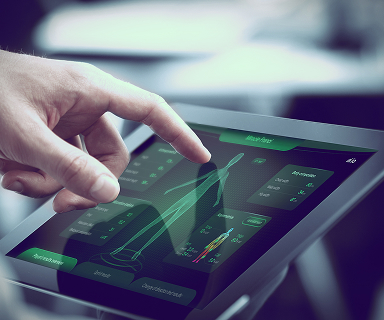
The metrics collected as part of aiLab testing are grouped into two categories; Physical and Cognitive.
The raw metric data is turned into a unified 1-10 system to help identify the strongest and weakest areas of performance for each player.
The 1-10 scoring system is squad and club specific, allowing for an accurate comparison of players across various age groups.
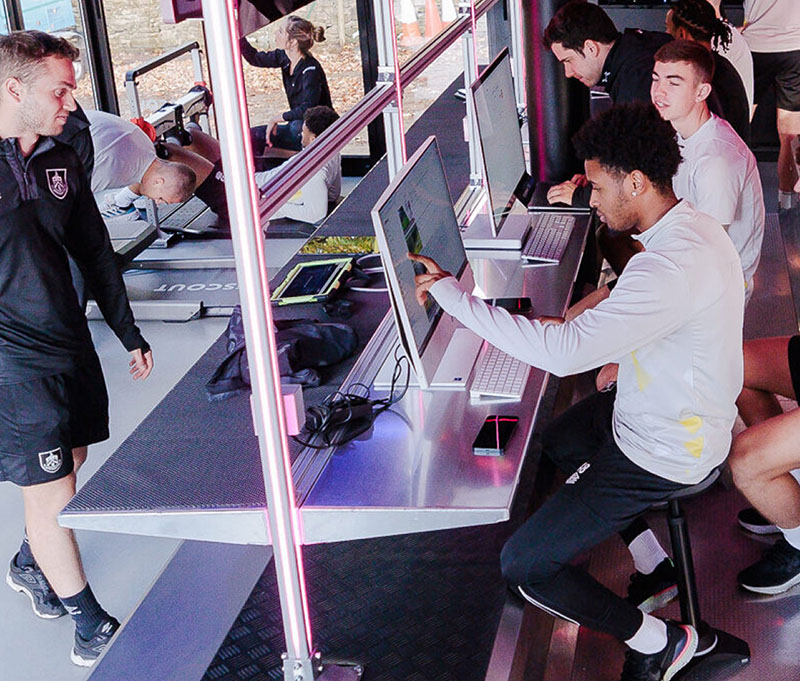
Cognitive assessments in our lab applies AI and gaming to neuroscience to effectively assess and map the cognitive health and performance of players. Through a series of short cognitive tests, we can assess athletes impulse control and reaction times, as well as the ability to process information and prioritise under changing circumstances.
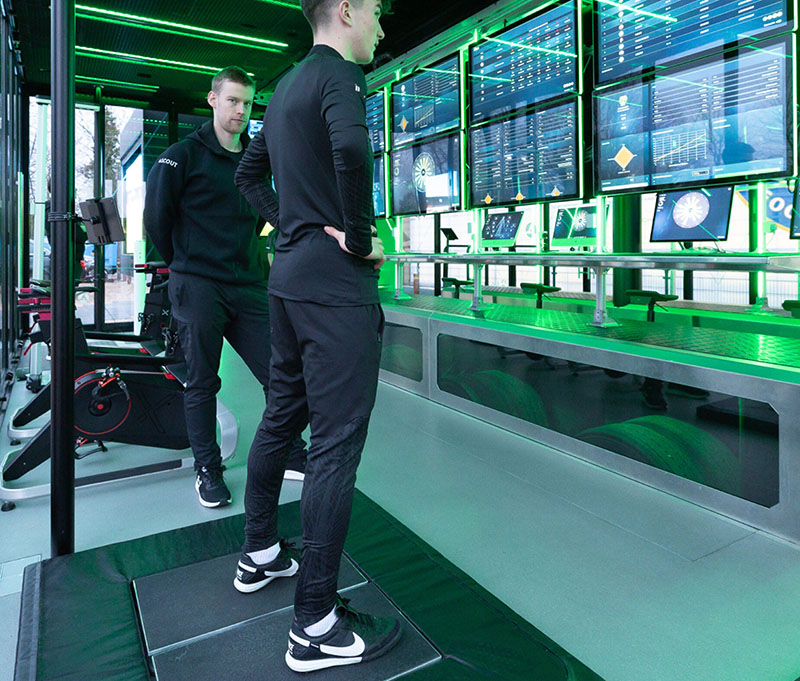
As part of our bespoke strength and power testing protocol, we can assess an athlete’s strength and explosive power aswell as determine the efficiency in producing, utilising and transforming force. Our testing protocols include both static and dynamic positions and movements and identify any asymmetries players might exhibit during different movements.
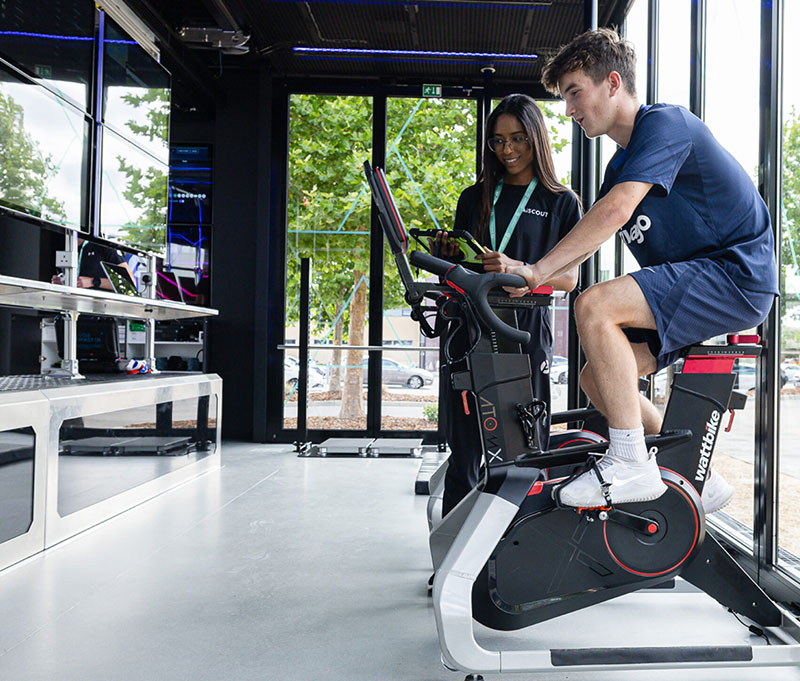
When needed, the aiLab testing protocol can be enhanced with conducting endurance testing in alignment with the club. This is an important tool for athletes to assess their endurance capacity and the ability to recover from high intensity efforts.
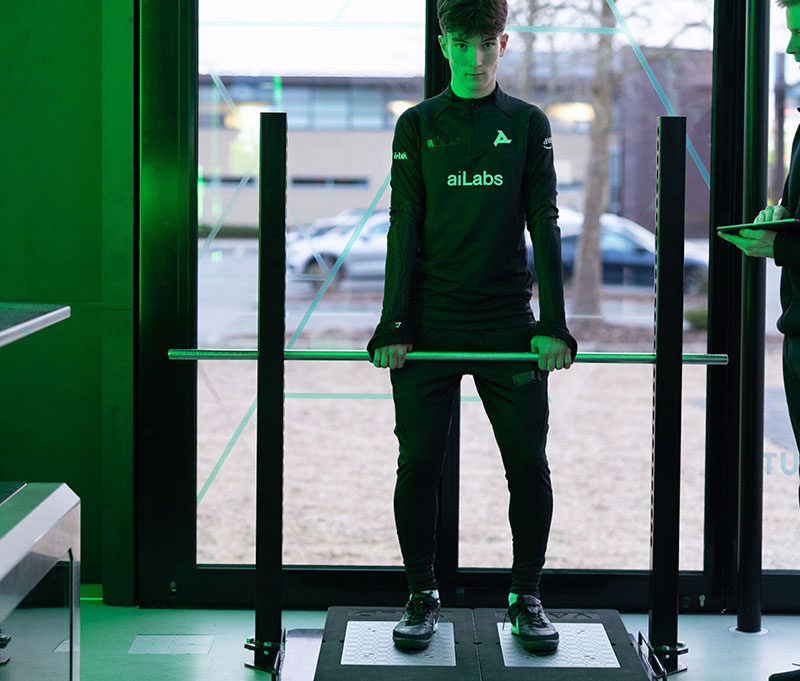
To minimise injury risks associated with rapid changes in direction or general lack of strength in players, our team assesses strength to highlight any significant imbalances between the left and right side of the body.
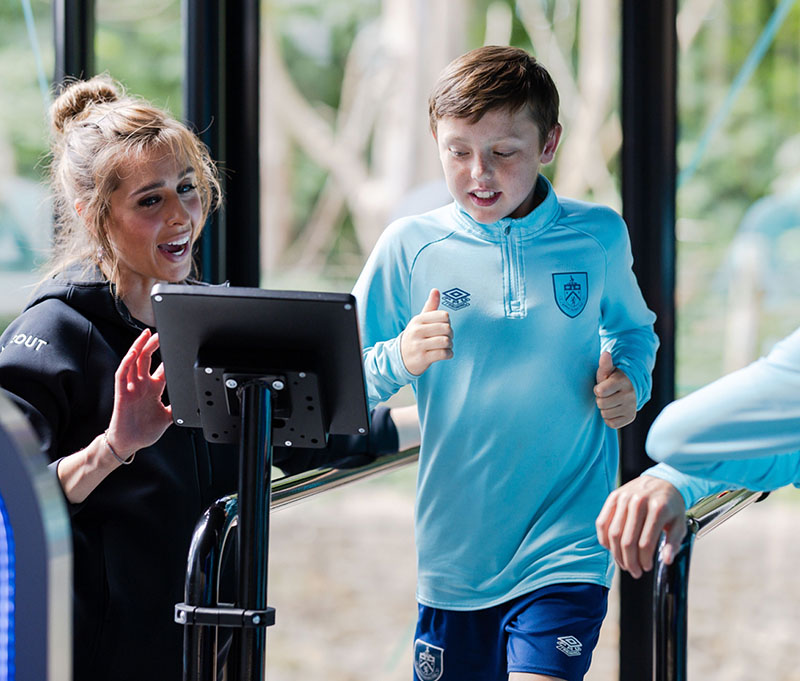
Being able to move efficiently is key for maintaining optimal performance for longer and delaying fatigue whilst reducing injury risk. A motion capture system installed over the treadmill and force plates in the aiLab, enables us to assess the movement pattern and identify key biomechanical metrics of athletes (such as impact forces the athlete is being exposed to during ground contact and left/right asymmetries), flag any abnormalities in motion that could contribute to future injury development and provide insight into movement strategy.
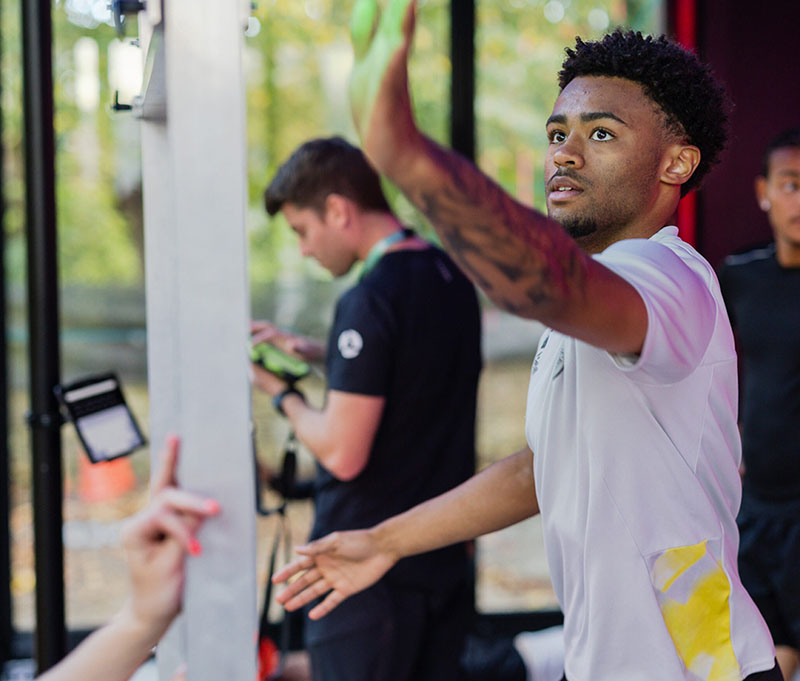
The reaction and agility testing system has been integrated to assess reaction time, agility and reflexes of an athlete in response to a visual stimulus. The reaction units are designed to flawlessly integrate into any physical test or exercise protocol. This makes it a great tool for measuring hand-eye coordination, reaction speed and balance. As part of the aiLab protocol, we currently assess the accuracy, precision and reaction times through bespoke upper and lower body tests.

A body scan allows us to analyse an athlete’s body composition and shape. During a single scan, athlete anthropometric measurements are being captured, reported, and analysed. This data is beneficial for long-term athlete tracking with regards to athleticism, athletes maturation phase and monitoring of asymmetries as part of their growth.
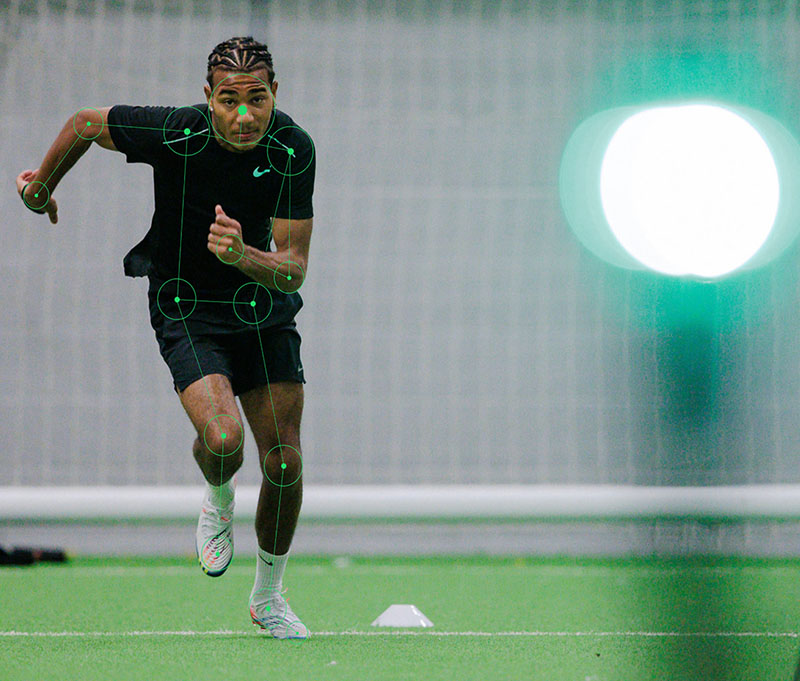
Testing with wireless timing gates allows us to profile an athlete’s linear speed and change of direction. Our testing protocols are customisable based on the club’s preference with split times to better understand acceleration, deceleration and change of direction.
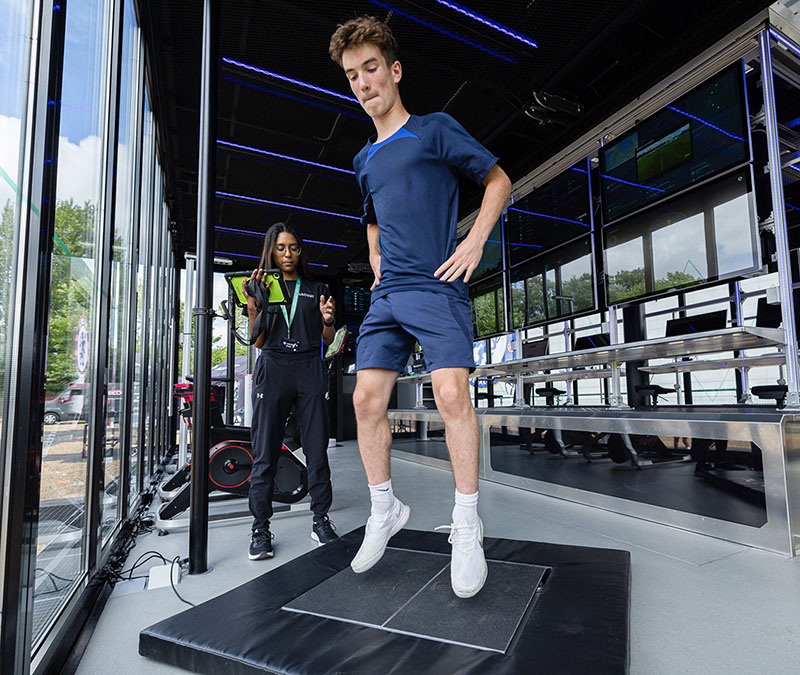
Countermovement Jump
Single leg Countermovement Jump
Squat Jump
Multi Rebound Jump
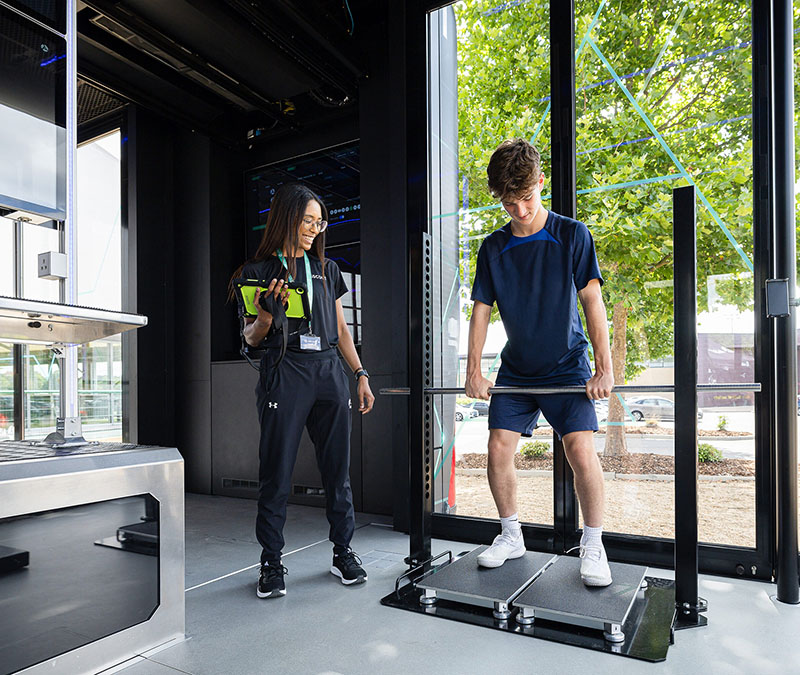
Isometric mid-thigh pull
Nordics
Supine hamstring knee flexion multiple positions
Groin adduction/abduction multiple positions
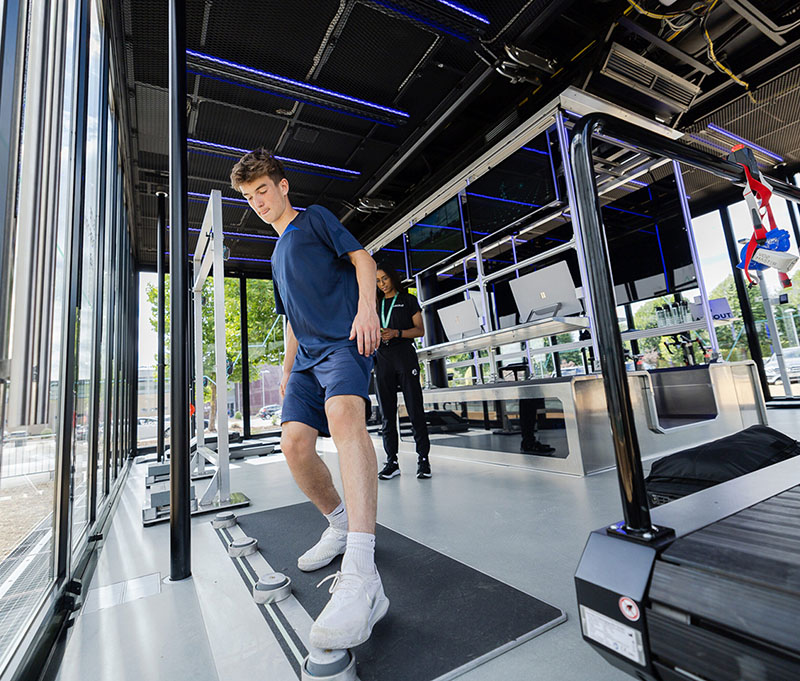
Linear sprinting via timing gates (5m, 10m, 20m and 30m sprint)
Change of direction & deficit
Hand reaction and agility test
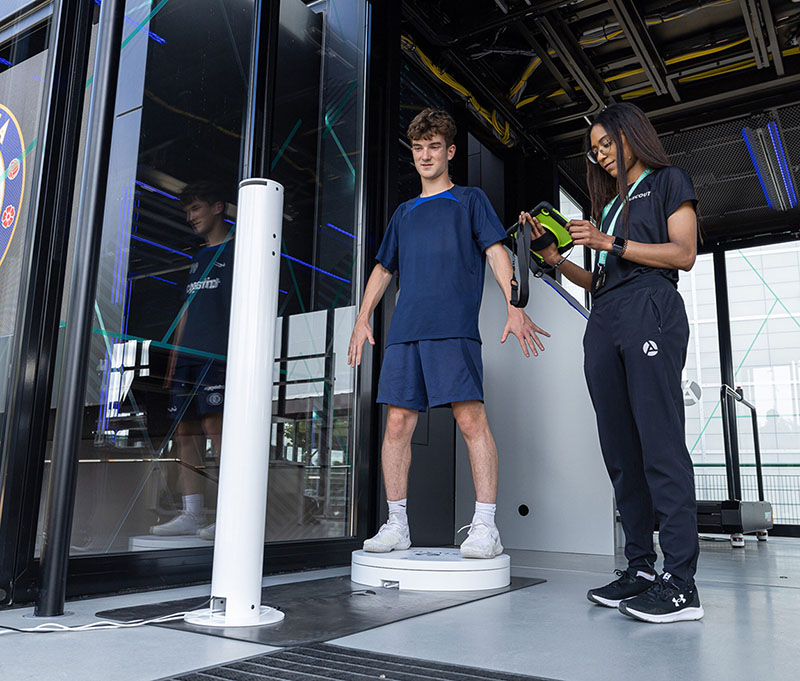
Asymmetries
Body composition
Relative peak strength
Range of motion (Dynamo)
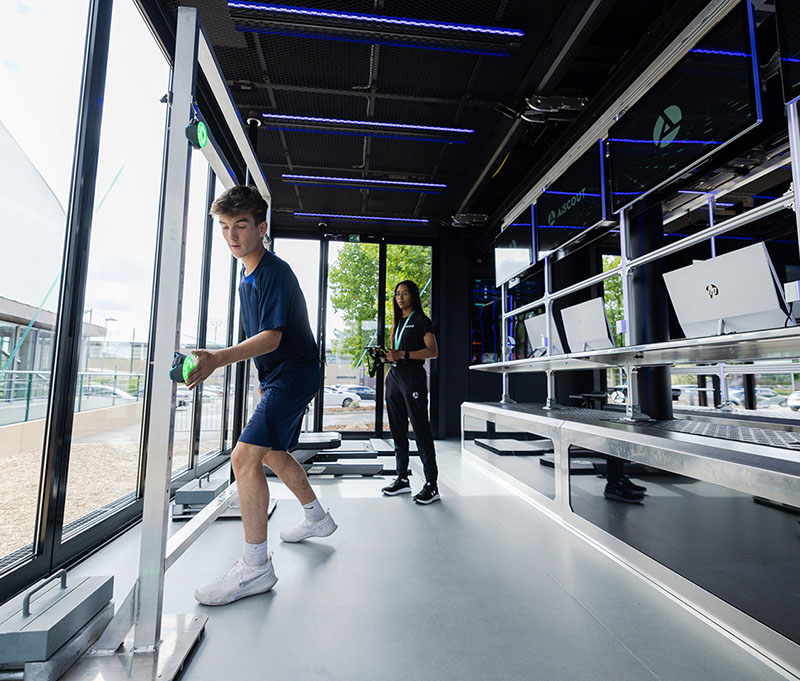
Prioritisation
Ability to prioritise and focus under stress
Reactions
Ability to quickly identify stimulus, process information and act on it
Mental Flexibility
Ability to adapt to changing circumstances
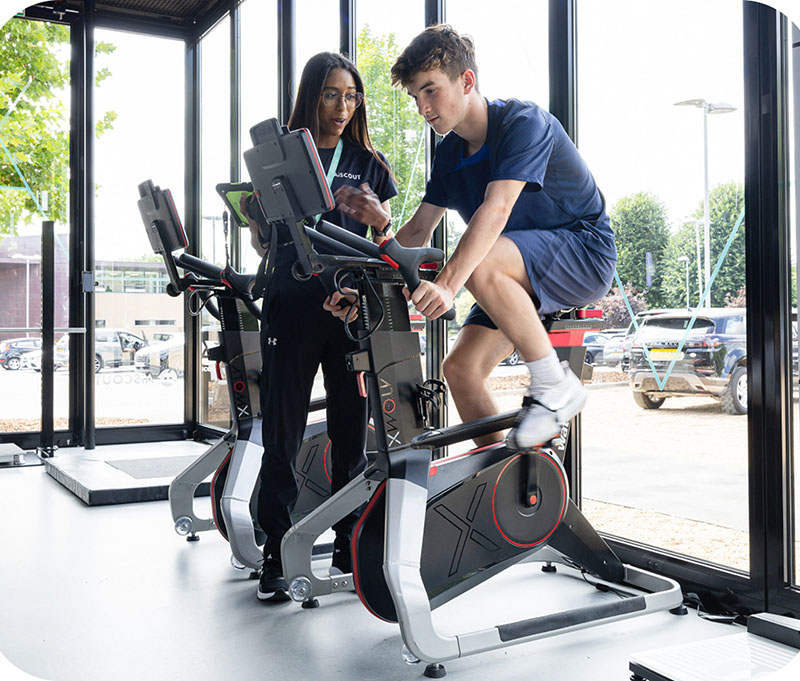
Aerobic field-based test
Fatigue test
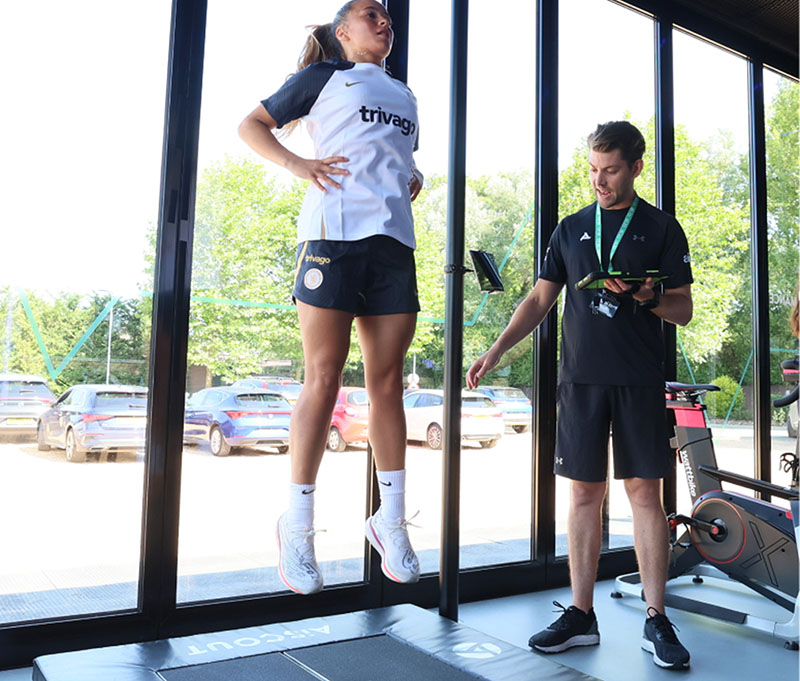
A vertical jump test performed by having an athlete dynamically squat to a self-selected depth and then jump as high as possible. This test is used to measure an athlete’s explosive lower-body power.
Test Intensity: 2/5
Muscle group tested: Lower limb (upper and lower leg)
Test time: 5 seconds
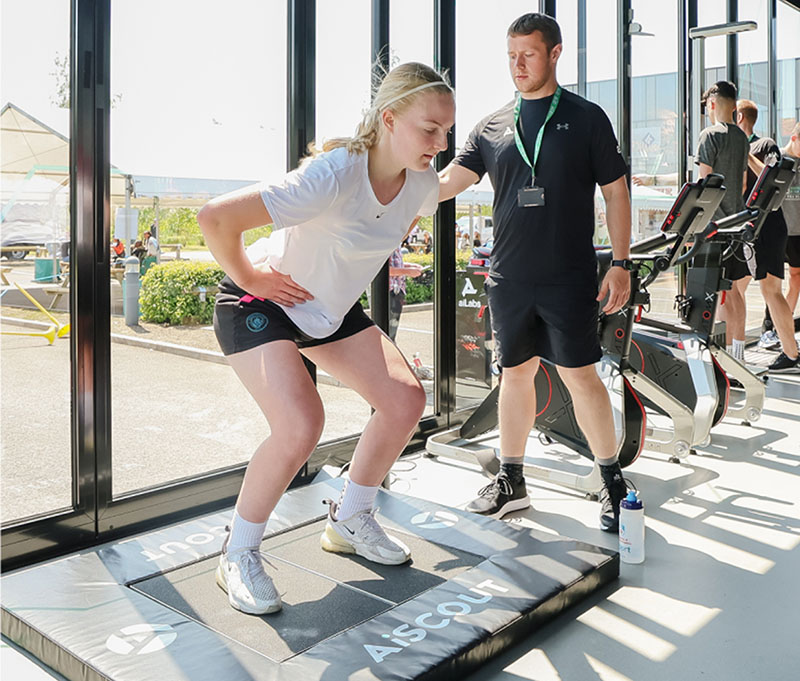
This is a single jump test performed by an athlete who is asked to start in a static, self- selected deep squat position and then jump as high as possible. This test is designed to measure an athlete’s explosive lower-body power (i.e. speed-strength ability).
Test Intensity: 2/5
Muscle group tested: Lower limb (upper and lower leg)
Test time: 10 seconds
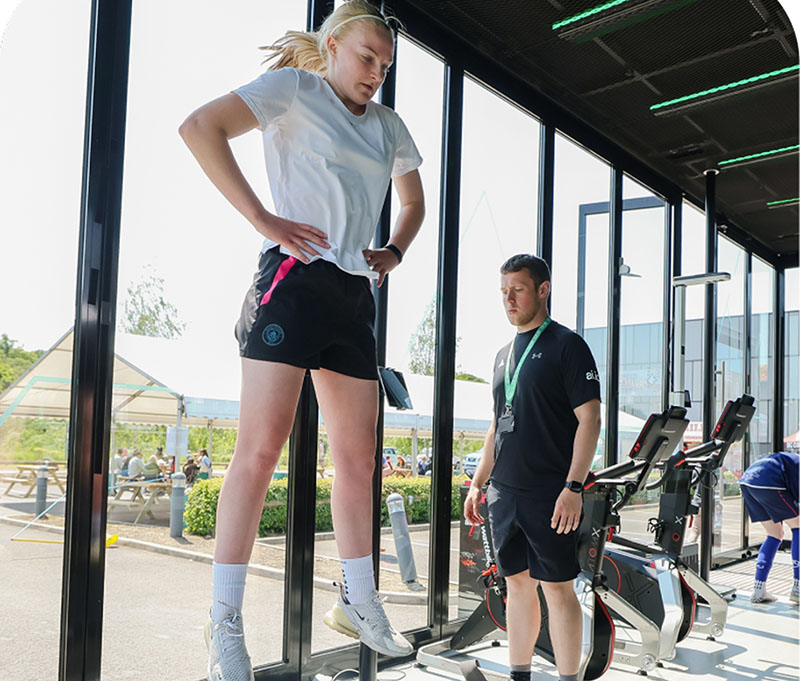
A dynamic test that consists of ten consecutive vertical jumps performed by an athlete. As part of this test, the athlete is asked to quickly squat to a self-selected depth and then jump as high as possible, land into a squat and then quickly repeat the movement sequence.
Test Intensity: 3/5
Muscle group tested: Lower limb (upper and lower leg)
Test time: 10 seconds
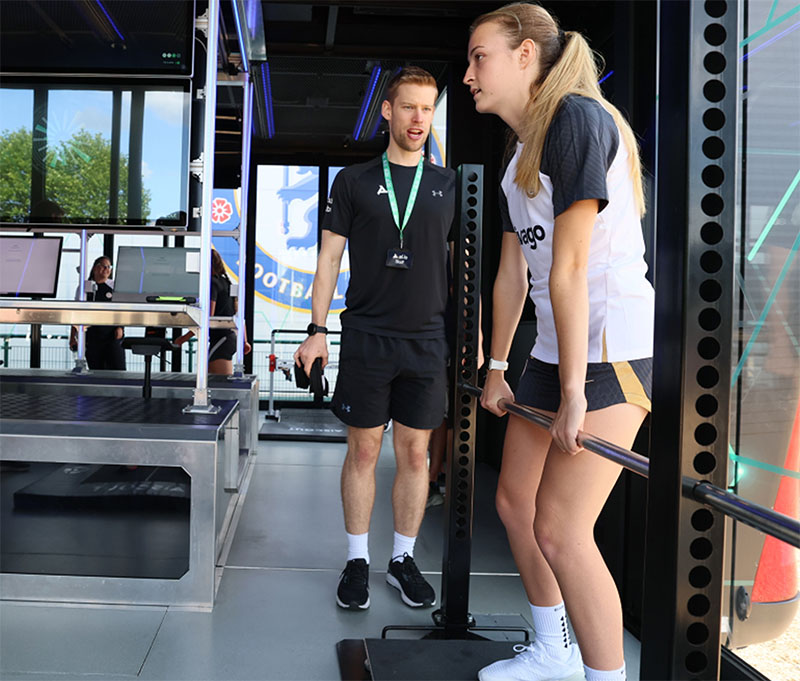
The isometric mid-thigh pull (IMTP) is a test designed to assess an athlete’s force producing capabilities such as maximal strength and rate of force development.
Test Intensity: 3/5
Muscle group tested: Lower limb (upper and lower leg)
Test time: 10 seconds
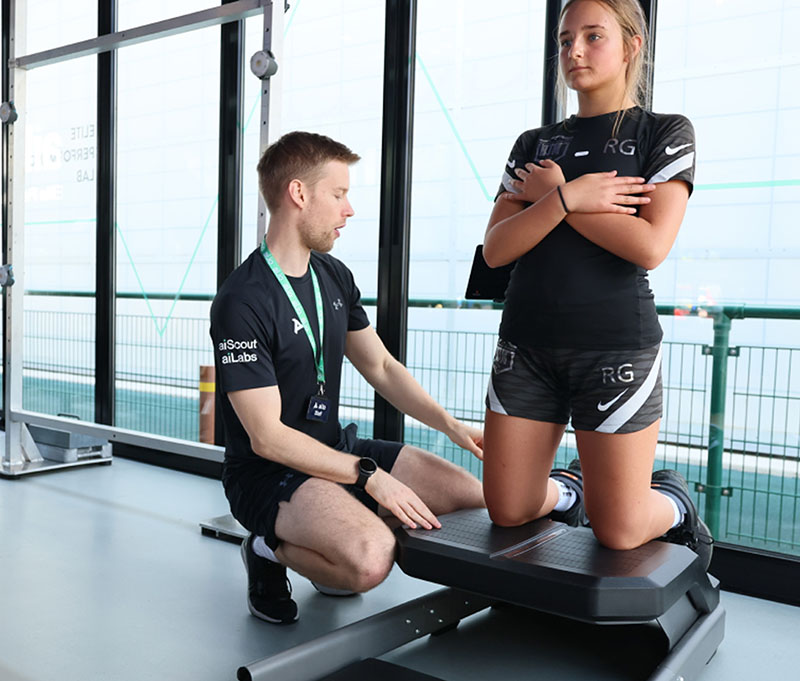
This test quantifies an athlete’s eccentric knee flexor strength. Current evidence suggests that lower levels of eccentric knee flexor strength increase the risk of hamstring strain injuries in football athletes.
Test Type: Eccentric
Test Intensity: 4/5
Muscle group tested: Knee flexors (hamstrings, gracilis, sartorius, gastrocnemius, plantaris, and popliteus)
Test time: 30 seconds
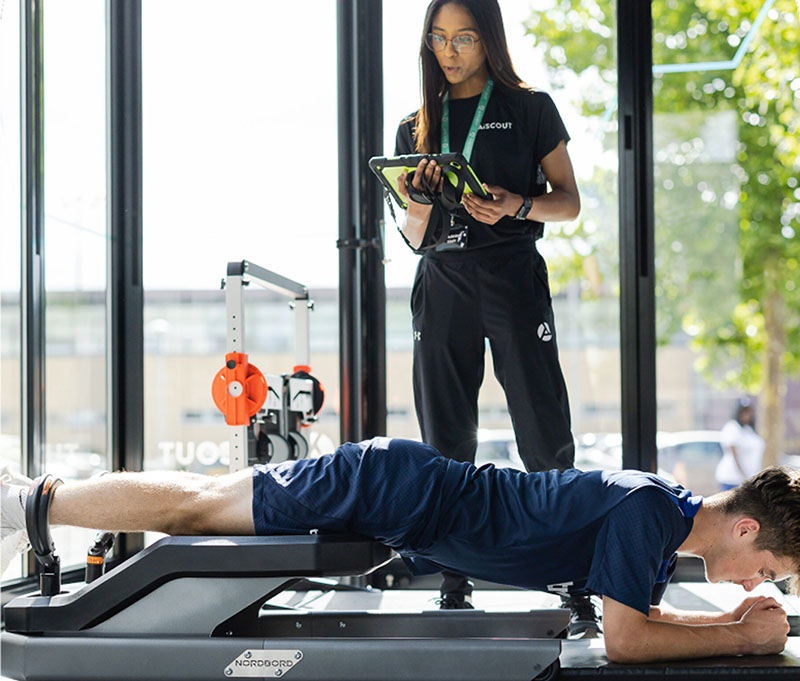
This test assesses the isometric strength of an athlete’s hamstrings.
Test Type: Isometric
Test Intensity: 3/5
Muscle group tested: Hamstrings
Test time: 15 seconds
*We use this test instead of a Nordic for any athlete below the age of 14
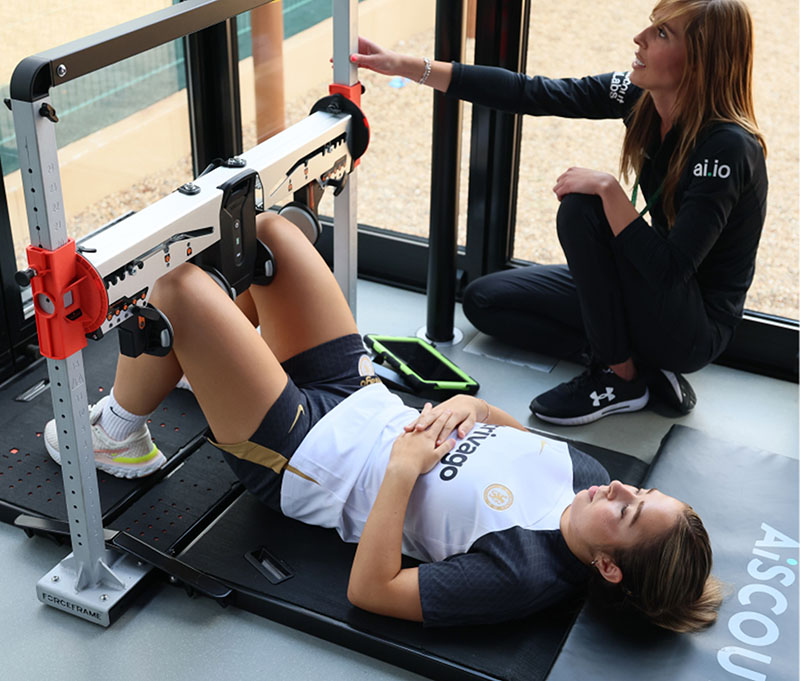
This test is designed to determine the adductor strength of an athlete by performing a series of inner thigh squeezes.
Test Intensity: 2/5
Muscle group tested: Lower limb (upper and lower leg)
Test time: 10 seconds
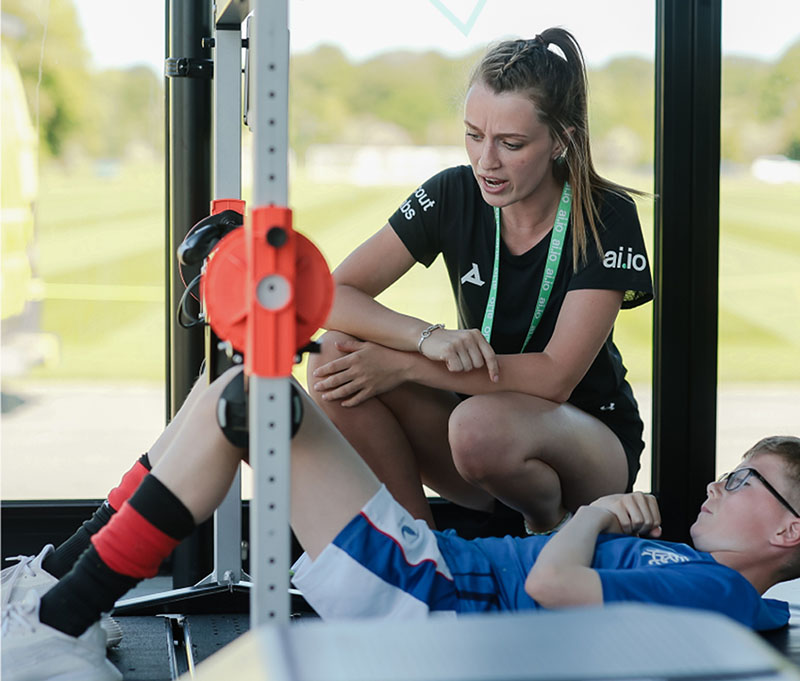
This test is designed to determine the abductor strength of an athlete by performing a series of outer thigh squeezes.
Test Type: Isometric
Test Intensity: 4/5
Muscle group tested: Abductors (outer thigh)
Test time: 15 seconds (The adduction and abduction tests are performed as part of one test protocol)
One Platform,
Infinite Solutions
ai.io can provide a base operating system for your existing facility, or in one of our many mobile, modular or bespoke full turnkey solutions.
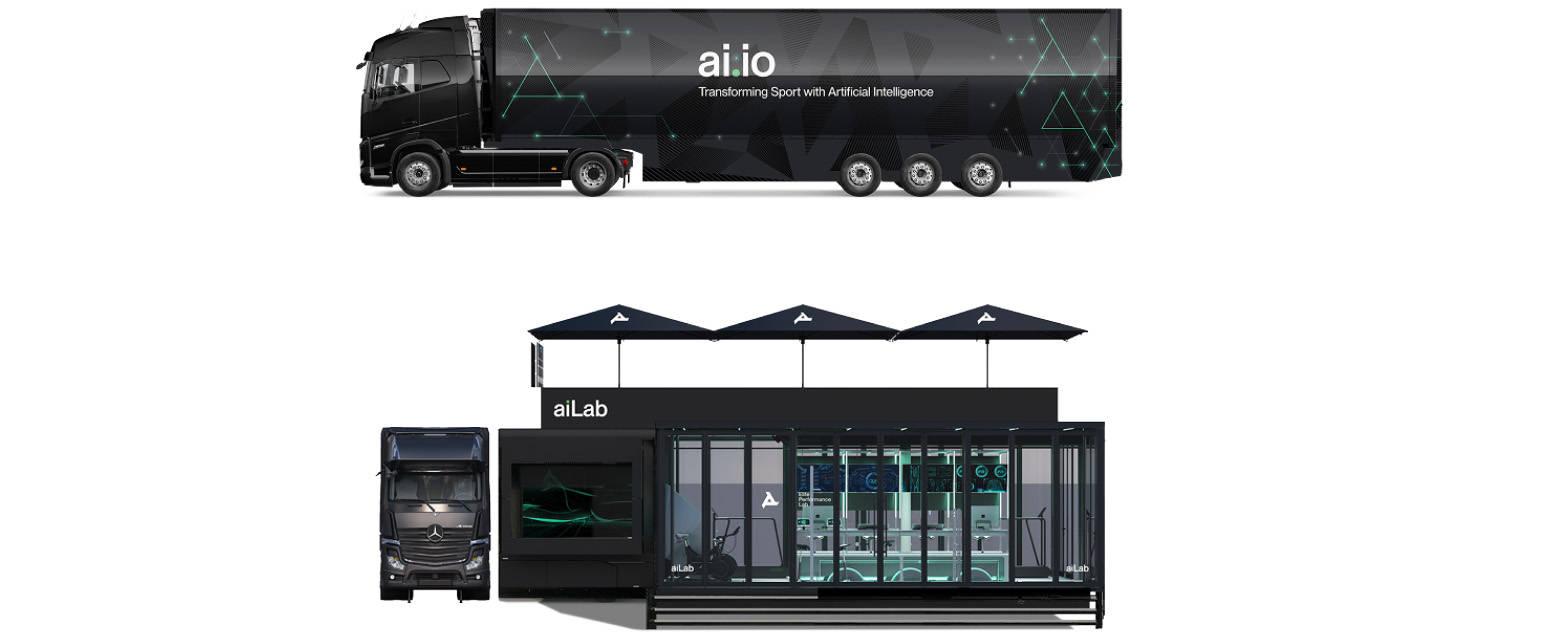
A mobile Elite Performance Lab with gold-standard equipment and aiLab Control Centre, offering real-time analysis, live game streaming, and rooftop in-game playback for teams anywhere in the world.
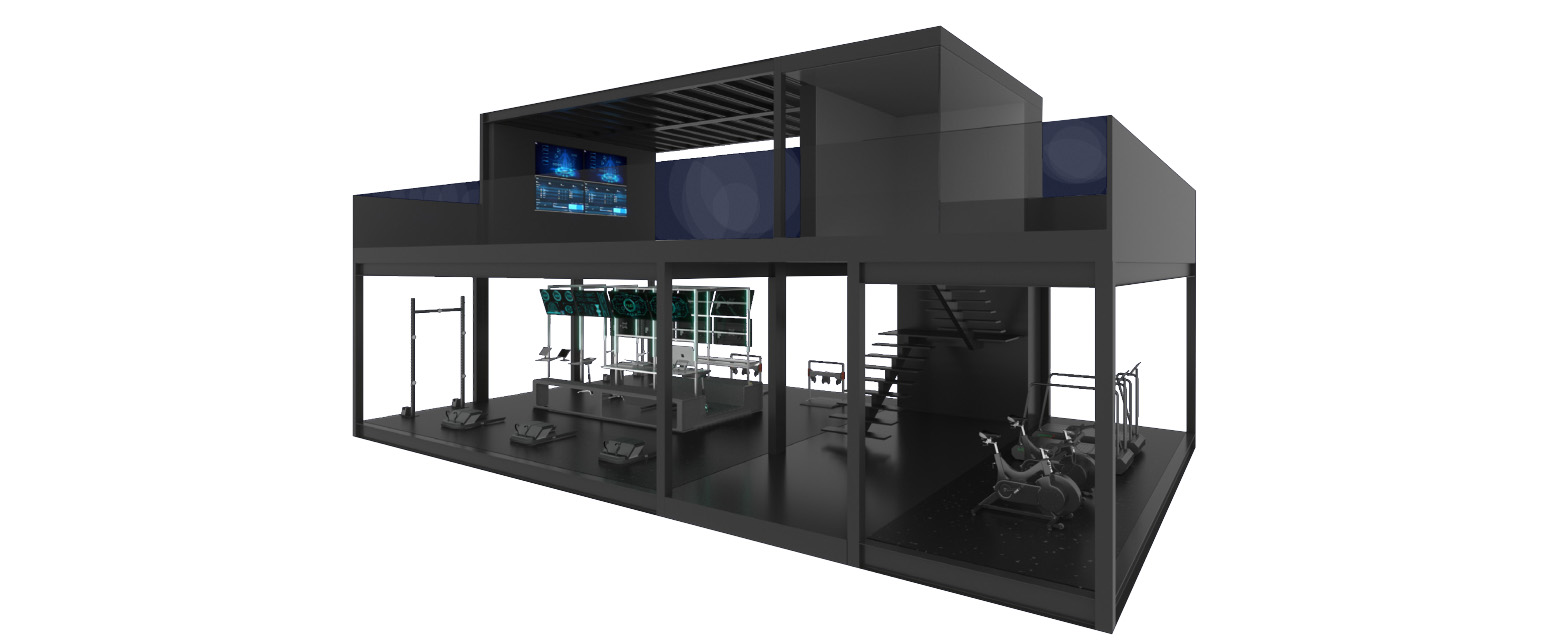
All the features of the Mobile Lab and Control Centre, delivered in a fully customisable permanent or temporary structure, tailored to fit your organisation’s needs and available space.
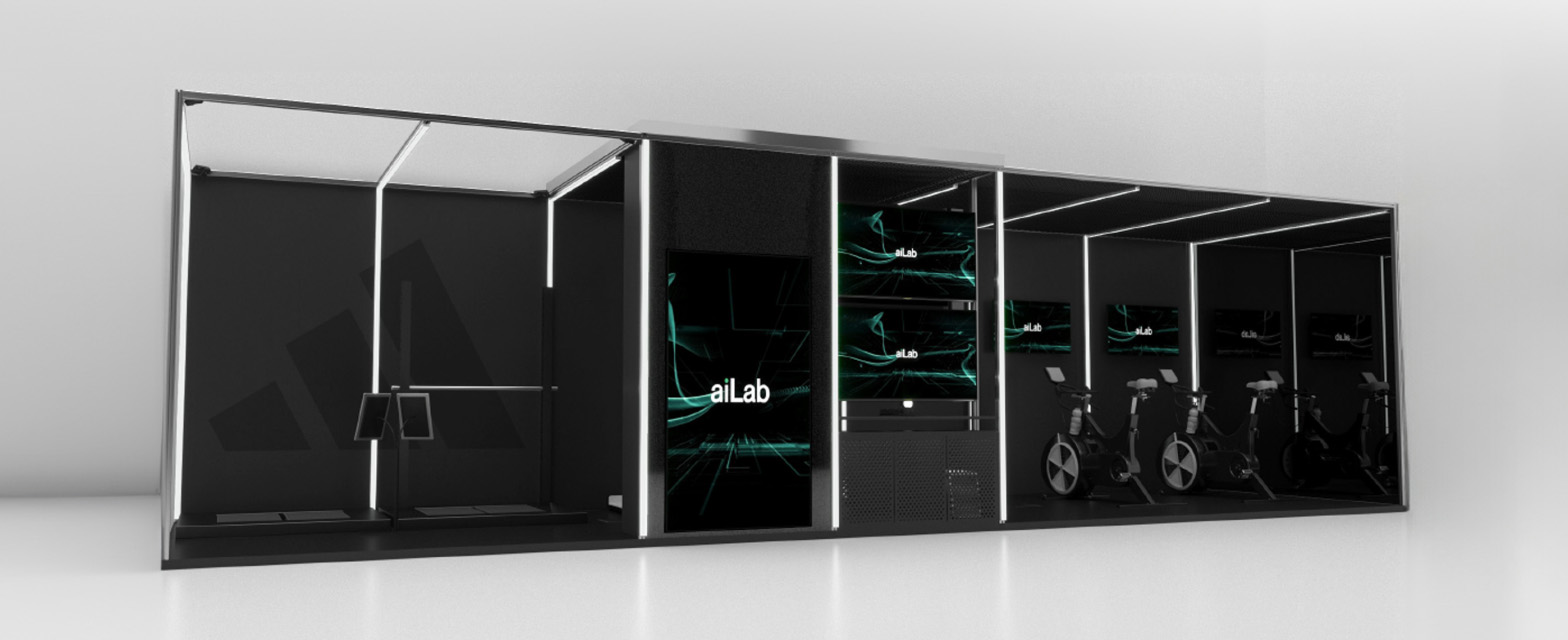
A permanent or temporary structure featuring gold-standard sports science equipment and the aiLab Control Centre, delivering connected, real-time performance analysis for organisations and their participants.
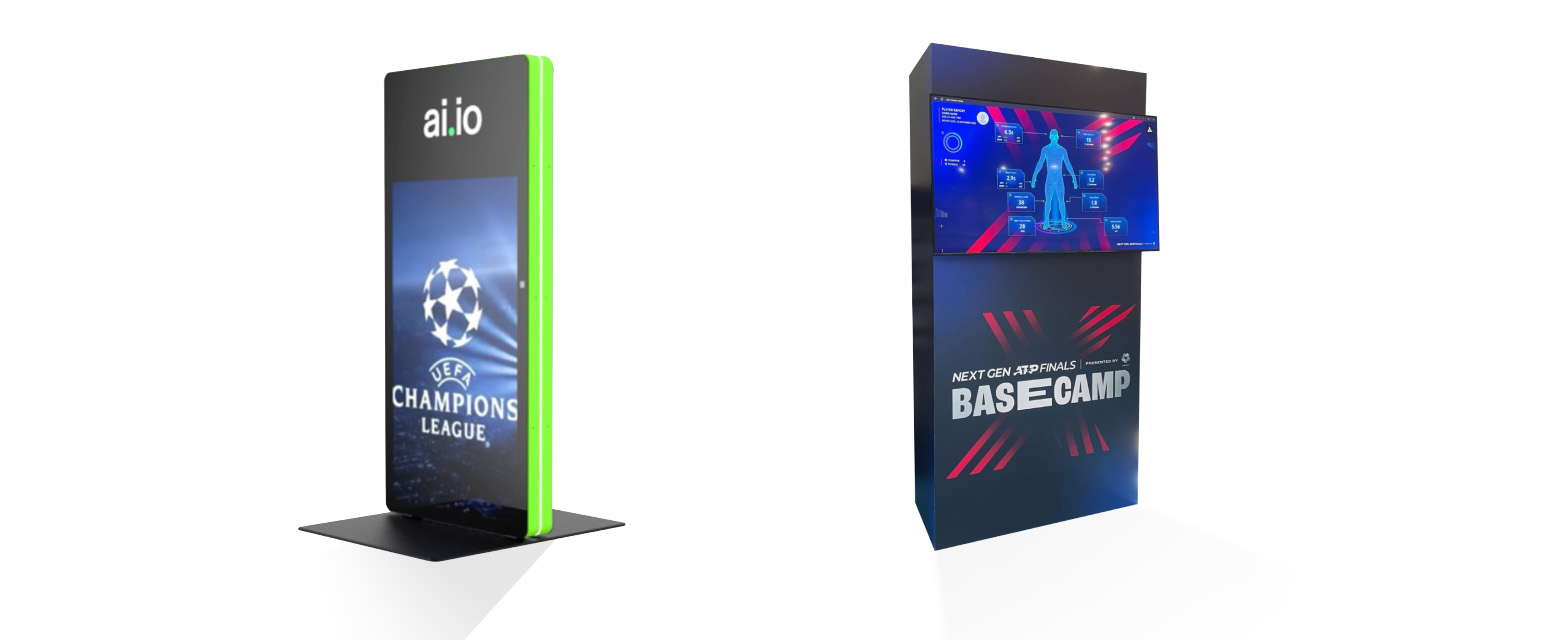
A portable, interactive experience for fans and athletes, featuring athletic and cognitive tests that analyse, score, and rank participants, with results instantly displayed on a live leaderboard.
Contact us to set up aiLab at your club or event.
Contact Us